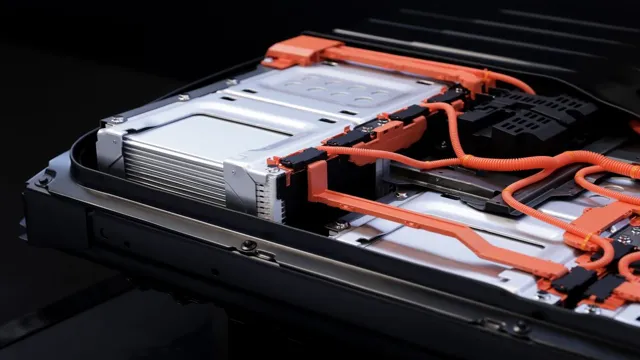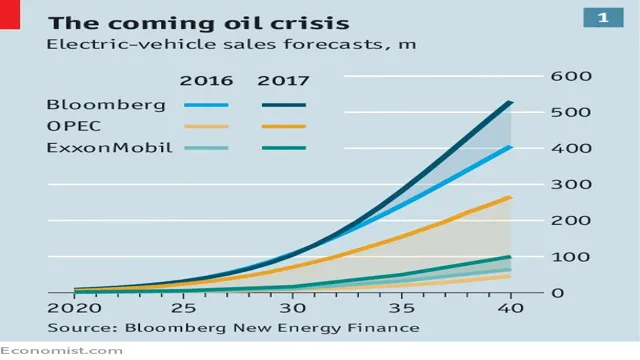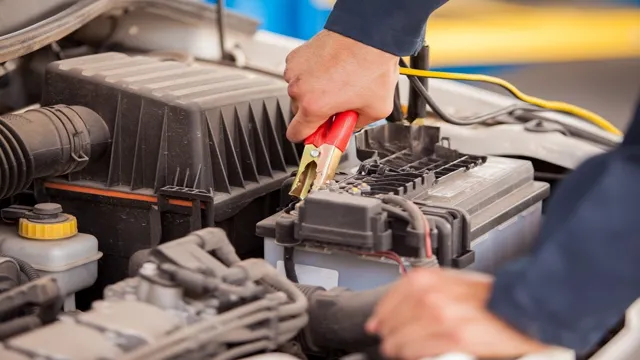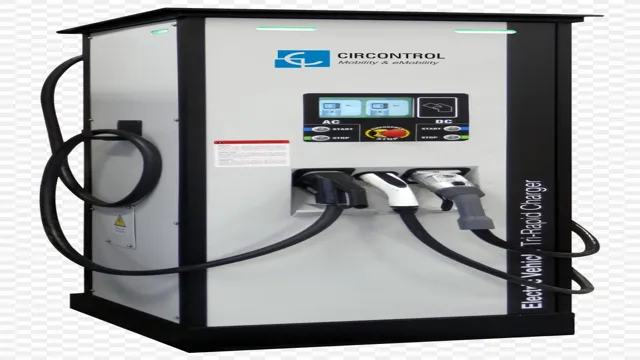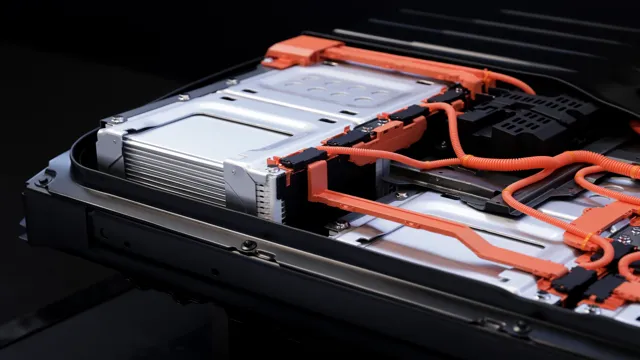Cobalt in Electric Car Batteries: Debunking the Myths & Facts
Electric cars are hailed as the future of transportation, as they seek to reduce carbon emissions and dependence on fossil fuels. However, a critical component that powers the batteries that electric cars use is the metal cobalt. Despite cobalt’s usefulness in enhancing battery performance and stability, its usage in electric car batteries raises environmental and ethical concerns.
Cobalt is primarily mined in the Democratic Republic of Congo, where it has been linked to human rights violations and child labor. With the rise in demand for electric vehicles, the demand for cobalt is set to increase, leading to even more environmental and ethical concerns. The debate surrounding this subject is one that’s critical to our planet’s future.
On one hand, the shift to electric vehicles promotes greener transportation methods. On the other hand, the use of cobalt in electric car batteries highlights the environmental and ethical impacts of mining practices. So, should we continue utilizing cobalt in electric car batteries despite its negative impacts, or should we pursue alternative methods? This issue is one that requires further examination and consideration as we strive to strike a balance between sustainability, ethical mining, and the practicalities of modern-day transportation.
What is Cobalt?
Do electric car batteries use cobalt? The answer is yes, many electric car batteries contain cobalt. Cobalt is a mineral that is used in the production of lithium-ion batteries, which are commonly used in electric vehicles. Cobalt is a key component of the battery cathode, which is the positively charged electrode in the battery.
While cobalt is an important component in the production of electric vehicle batteries, it is also a controversial one. There are concerns about the environmental and human rights impact of cobalt mining, particularly in the Democratic Republic of Congo. To address these concerns, some companies are working to reduce their reliance on the mineral by using alternative materials, such as nickel.
Despite these efforts, cobalt is likely to remain an important component of electric car batteries for the foreseeable future.
Chemical properties of cobalt
Cobalt is a chemical element with the symbol Co and atomic number 2 It is a transition metal that is bluish-gray in color and tends to retain its shine even when exposed to air. Cobalt has several chemical properties that make it useful in various industries.
For example, it is a hard metal that resists corrosion and oxidation, which makes it ideal for use in alloys with other metals like iron, nickel, and chromium. In addition, cobalt has magnetic properties, and it is commonly used in the production of high-strength magnets and magnetic alloys. Cobalt is also an essential component of vitamin B12, a vital nutrient that helps to maintain healthy nerve cells and red blood cells.
In summary, the chemical properties of cobalt make it a versatile metal that has many uses in industry, health, and other fields.
Sources of cobalt
Cobalt is a silvery-grey metal that is relatively rare in the earth’s crust but is found in several types of ores. It has a high melting point and is known for its high energy density, making it valuable for use in batteries, aircraft engines, and other high-tech applications. One of the primary sources of cobalt is the Democratic Republic of Congo (DRC), which produces over 60% of the world’s supply.
However, the mining of cobalt in the DRC has raised concerns over human rights abuses and environmental damage. Other countries that produce cobalt include Canada, Australia, Russia, and Zambia. Recycling is also becoming an increasingly important source of cobalt as demand for electric vehicles and other battery-powered devices continues to grow.
With the use of sustainable and ethical practices, cobalt can continue to be a pivotal element in modern technology.
What are Electric Car Batteries?
Electric car batteries are rechargeable batteries that power electric vehicles. These batteries store the energy needed to power the motor. One of the main components of an electric car battery is the cathode, which is typically made of a metal oxide.
One of the metals commonly used in these metal oxides is cobalt, along with nickel and manganese. Cobalt is used because it has properties that make it effective for use in batteries – it is chemically stable and has a high energy density. However, the use of cobalt in electric car batteries has been a controversial issue due to concerns over unethical mining practices in some countries and the potential for supply chain disruptions.
As a result, some companies are now working to develop cobalt-free alternatives to electric car batteries.
Types of electric car batteries
Electric car batteries are a crucial component of electric cars. They store and supply the power required to drive an electric vehicle, making them an essential part of the car’s electrical system. There are three main types of electric car batteries available today.
The first type is lead-acid batteries, which are the most affordable but have the lowest energy density and a limited lifespan. The second type is nickel-metal hydride (NiMH) batteries, which are more expensive but offer better energy density and longer lifespan. The third and most popular type is the lithium-ion (Li-ion) battery, which is the most expensive but provides the highest energy density and the longest lifespan.
Li-ion batteries are also smaller and lighter than NiMH batteries, making them more versatile and suitable for use in electric cars. With advancements in technology, we may see new types of electric car batteries emerge in the future that are even more powerful, longer-lasting, and affordable.
Composition of electric car batteries
Electric car batteries are made up of a combination of different materials that work together to produce power. The composition of the batteries varies depending on the type and model of the car, but most commonly they consist of lithium-ion cells. These cells use a chemical process to store and release energy, allowing the car to run on electric power.
The cells themselves are made up of a cathode, an anode, and an electrolyte, which work together to create an electrical charge. Other materials, such as cobalt, nickel, and manganese, are also used in the battery to enhance its performance and durability. Overall, the composition of the electric car battery is carefully designed to provide maximum efficiency and longevity, while minimizing environmental impact.
As demand for electric cars continues to grow, advances in battery technology are leading to even better performance and longer ranges.
Cobalt Use in Electric Car Batteries
“Do electric car batteries use cobalt?” The answer is yes, but not all of them. Cobalt is frequently used in the production of lithium-ion batteries, including those used in electric cars. It is chosen specifically for its high energy storage capacity and long lifespan, which make it a valuable component for manufacturers.
However, the use of cobalt in batteries has recently come under scrutiny due to concerns over unethical mining practices, environmental impact, and human rights violations. As a result, some companies are exploring alternative materials or attempting to reduce their reliance on cobalt to minimize these concerns. Ultimately, the use of cobalt in electric car batteries varies from manufacturer to manufacturer, and consumers should do their research to determine the environmental and ethical impacts of the batteries they choose to use.
Percentage of cobalt in electric car batteries
Cobalt is a critical element in the production of electric car batteries, but many are beginning to question its environmental and ethical implications. While it only constitutes a small percentage of the battery’s overall composition, it plays a vital role in ensuring its performance and longevity. Currently, most electric car batteries contain around 10-20% cobalt, but there is a growing push to reduce this percentage even further.
This is due in part to concerns over the mining practices used to extract cobalt, which have been linked to child labor and environmental degradation in several African countries. Additionally, there are worries about the long-term sustainability of the world’s cobalt reserves and the fact that it is a finite resource. Nonetheless, it remains essential to the current generation of electric car batteries, and manufacturers must continue to work to find ethical and environmentally friendly sources of cobalt, as well as reducing its usage where possible.
Impact of cobalt on electric car battery performance
Cobalt is an essential component in the production of electric car batteries. It is used to increase energy density and improve battery performance. However, the mining of cobalt has been linked to human rights abuses, child labor, and environmental degradation in certain parts of the world.
Therefore, there has been a push to reduce or eliminate cobalt in electric car batteries. While some manufacturers have made progress in this area, most still rely on cobalt for their batteries. It remains a complicated issue as the reduction or removal of cobalt may result in lower battery performance and shorter lifespans.
Nevertheless, efforts to find alternative materials are ongoing, and technological advancements are being made to reduce the overall dependence on cobalt in electric car batteries.
Alternatives to Cobalt in Electric Car Batteries
Yes, electric car batteries do use cobalt, but the amount required is gradually diminishing. Cobalt is a scarce and expensive metal, and most of it comes from the Democratic Republic of Congo, where extracting it has been linked to human rights abuses and environmental damage. As a result, there has been a move by automakers to find alternatives to cobalt, or reduce the amount of it used in their batteries.
One solution is to use nickel-based batteries, which are cheaper and more abundant than cobalt, but can be less stable. Another approach is to use solid-state batteries, which use a solid electrolyte instead of a liquid one, and could offer higher energy density and longer life than current lithium-ion batteries. In any case, finding alternatives to cobalt is essential to reduce the reliance on finite minerals and to ensure a more sustainable future for electric vehicles.
Conclusion
It seems that the answer to whether electric car batteries use cobalt is both a yes and a no. While cobalt has traditionally been used in lithium-ion batteries, advances in technology have led to the development of cobalt-free variations. However, cobalt still remains a popular and effective choice for many electric car manufacturers due to its high energy density and ability to extend the life of the battery.
So, the bottom line is that it all depends on the specific battery and the preferences of the manufacturer. One thing is for sure though, as electric cars become more mainstream, the demand for cobalt-free alternatives will continue to grow.
FAQs
What materials are used in electric car batteries?
Electric car batteries typically use a combination of lithium, nickel, cobalt, and manganese.
Are there any health or environmental concerns related to cobalt mining for electric car batteries?
Yes, there have been concerns raised about the social and environmental impacts of cobalt mining. Some companies are working to ensure responsible sourcing of cobalt.
How long do electric car batteries typically last?
It depends on the specific battery and usage, but most electric car batteries are designed to last approximately 8-10 years or 100,000-200,000 miles.
How does the use of cobalt in electric car batteries compare to other types of batteries?
Cobalt is commonly used in lithium-ion batteries, which are the most popular type of battery for electric vehicles. However, some companies are exploring alternative battery chemistries that use less or no cobalt.
